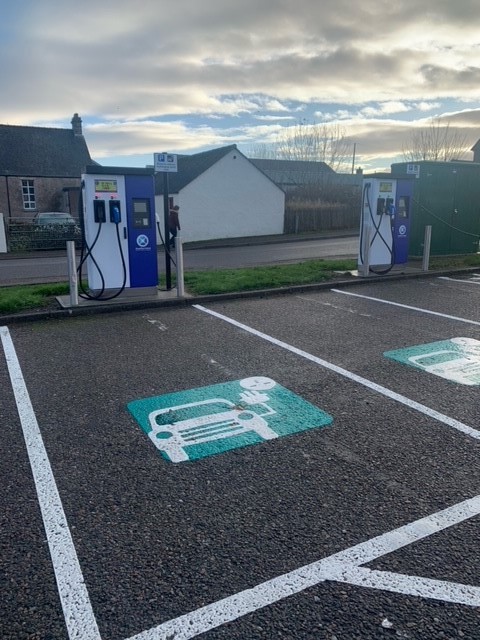The Highland Council’s Economy and Infrastructure Committee members approved a revised tariff structure for Electric Vehicle (EV) charge points across the region.
The revised tariff will result in an essential increase in charges as the local authority seeks to enable a sustainable model for the EV network going forward.
The date for the introduction of the new tariff is 1 March 2023.
Members noted that Highland Council’s EV charge points have had the same tariff in place since 1 June 2021 and the increasing pressure of that pricing structure placed on Council budgets.
Chair of the Economy and Infrastructure Committee, Cllr Ken Gowans, said:
“We are taking prudent steps to ensure there is reliable and sustainable infrastructure throughout Highland for locals and visitors alike.
“This will help promote tourism and boost the economy providing collateral benefits for everyone in our communities.”
He added:
“The new tariff will not only alleviate existing revenue pressures but also respond to increased operating costs.
“It will provide vital income to support and reinvest in the current EV infrastructure network, so that we are able to maintain low carbon transport connectivity assets for, and to, our city and rural communities.”
The tariff approved by Members of the Economy and Infrastructure Committee earlier is outlined in the table below and follows the same two-tier structure introduced on 1 June 2021.
Both the Scottish and UK Government have pledged to phase out the need for new petrol and diesel cars and vans by 2030.
The previous tariff for Highland Council EV charge points did not cover the total cost associated with management and future of the estate.
Transport Scotland’s Local Authority Installation Programme (LAIP) grant funding is also coming to an end and any funds available have been allocated to specific sites.
The Highland Council currently hosts 91 EV charge points on the public network around the region, of which 52 are Journey (43kW & above) charge points and 39 are Destination (22kW & below) charge points.
There are additional projects in progress which will see a further 17 installed within the current financial year..
The number of charging sessions on the Highland Council EV network has increased steadily over the past few years, indicating a healthy increase in uptake of electric vehicles and additional demand for publicly accessible charging capacity across the network.
The number of charging sessions increased by 50% from 2020 to 2021.
For 2021-22, approximately 85% of all sessions were using a journey charge point and consumed 94% of the total energy supplied.
Only 16% of charging sessions were using a Destination charge point and consumed just 6% of the total energy supplied.
The two-tier tariff structure is designed to support residential EV users to utilise the a comparable charging tariff to domestic charging where access to home charging facilities is not possible.
The Highland Council and the wider public network is not intended to be the sole provider of electric vehicle infrastructure.
It is expected that private and public charge points will increase, but that the focus will be on EV users to install home charging facilities.



